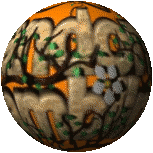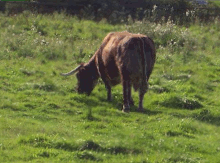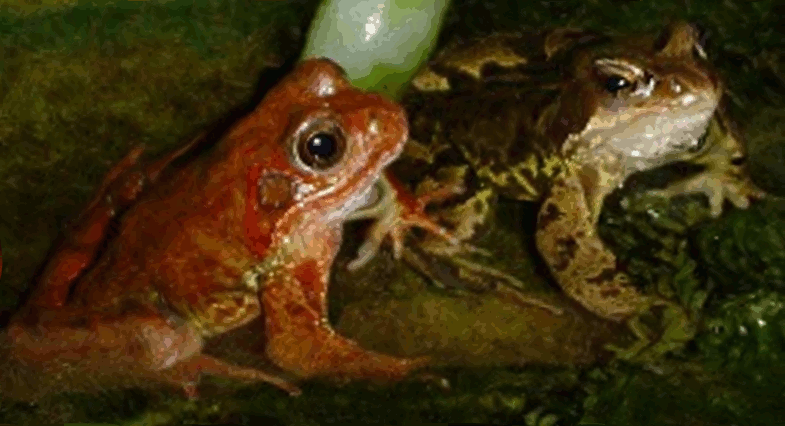The year opened with so many problems which have snowballed month after month. Our species has therefore almost been forced to ignore major changes that will sooner rather than later affect us all. Our seas are over fished and the mammals of the sea are becoming reduced in numbers as we have eaten up their food stocks of fish as well as most of our own. The numbers of birds are dwindling and many are probably down to critically small quantities especially in the smaller varieties. What may affect mankind most of all are the dramatic drop in flying insects. These are our pollinators – they are the life givers of our crops and we rely on them for large quantities of food production. They have dropped so drastically in numbers in some regions of the world that crops are having to be pollinated by hand – flower by flower to reap any harvests at all.
We all noticed that honey bees were no longer visiting our gardens … but did any of us quite realise just how many other flying insects had also stopped visiting as well? Somehow we need to turn around the demise of these precious creatures because without them - we and all other species on this planet will have a very difficult time. Can you imagine what food prices will soar to if crops have to be manually pollinated? How scarce all food will be when there is less to go around.
How can we turn things around? How can we prevent the situation from getting any worse? We all need to take ownership. Perhaps it’s time to say no to pesticides and insecticides. We may need to ask more questions about our food … perhaps even just buy organic food produce. We should also think about increasing the amount of flowers in our gardens – not just any flowers but ones that are specifically used by insects for breeding purposes. Annuals are useful for this and it is surprising what just a few scattered around a garden will do to help.
Remember that next time you might feel inclined to squash an insect you may well inadvertently eventually be adding a cost to your weekly food bill. Frightening thought isn’t it?



















































10 comments:
Excellent, absolutely outstanding Polly. we should all thank the insects for their part in keeping our planet and us alive. BRAVO !
It is a scary thought but something that we should all be more concerned with. After reading your last line I'm feeling a little guilty about a post that I have scheduled for later this week .
Although this isn't a very scientific method of determining causation, I cannot help but offer a carefully noted observation - on my part. Colony Collapse Disorder began in the very same year that Genetically Modified Crops were first planted and in virtually the same geographic regions. It has spread into every region now growing these types of crops and at approximately the same pace as their agricultural introduction.
Whereas, pesticides: have been around for generations, created no noticeable effect [unless directly applied to the hives], and have been utilized all across the country without the same deleterious effects as Genetically Modified Crops.
I know that this comment will tick off Monsanto and numerous other Agricultural Bio-Genetic Engineering Firms... but, I make my living off of telling "The Truth" as I see it!
'The Real American' - There is much that I read and looked and listened to before I wrote this little post. China started using human pollinators in quite a variety of its regions years ago. I think that you will find that although GM crops may well have caused problems in some areas, that insecticides and pesticides have caused problems in many others.
My suggestion is that we should rather sit up and take notice and try and resolve the problem before it becomes irreversible. Once a creature becomes exticnt then who knows what the consequences will be on all of us. There are far too many creatures that are just a hairs breath away from the fragile possibility of extinction.
If you go out into your garden or a nearby area of green and begin counting insects on the wing you will see how very few you can count in ten minutes. Whereas just a few years ago it was impossible to keep count of flying insects.
Remember that China irradicated flies from its country several years ago from choice. Also eco systems are very complex and we all need to take stock of that and not wait until it is too late to sort out problems that will eventually affect us all.
The Web is scattered with all kinds of information on this subject but perhaps if you have time you might like to check out: http://www.beesfordevelopment.org/info/info/pollination/pollination-of-apples-in-.shtml
Part of this article includes the following statement:
"The apple farmers use pesticides excessively. They spray 10-15 times each season, even during flowering time. Past experiences indicate that pesticides used during flowering seasons killed many bee colonies and other natural insect pollinators, in addition to killing apple pests."
We do flowers every year. The annuals are just about gone. Some of the perennials are still flowering. I sit on the patio and watch the bees on the flowers. I try not to hurt any of God's creatures.
I live in south central Texas and we have more than an abundant supply of insects! Bees are still around to pollinate our gardens and fruit trees.
I do agree we need to use less pesticides and insecticides. Almost all the 'fresh' food we buy today at stores have been treated or genetically modified. Companies like Monsanto are the worst offenders and are actually trying to control all seeds sold around the world.
As for organic foods, you need to really be careful of this 'false label' and research how a particular organic product is made.
A couple of recommended sites if you are interested:
http://www.westonaprice.org/
http://www.thehealtheconomist.com/
Thanks for allowing me to comment.
I've noticed that I hardly see butterflies anymore despite having flowers in my yard that they love, and I NEVER see fireflies.
YummY! Down on This
I didn't think of that as I live on a little island where any available space is used for highrise buildings. We hardly see any bees or butterflies.
I don't want to pay more for my food as it is already expensive. :(
You stated:
" 'The Real American' - There is much that I read and looked and listened to before I wrote this little post. China started using human pollinators in quite a variety of its regions years ago. I think that you will find that although GM crops may well have caused problems in some areas, that insecticides and pesticides have caused problems in many others."
Which is all very good. However, I was speaking for the United States - where I personally live.
We have used insecticides a whole lot longer than China and operated under the concepts of insect control, rather than total eradication. China doesn't have much in the area of Environmental Protection Laws - as we have for decades - nor an Environmental Lobby to placate, since the 1970's.
Speaking for us, the onset of Colony Collapse Disorder directly correlates to Genetically Modified Trees, Plants, and Crops. Whereas, our most powerful chemical insecticides were banned over 30 years ago.
Meanwhile, the natural toxins being exuded by these new biological and laboratorical abominations kill everything indescriminantly as they were fully designed to do. They kill: Ants, Bees, Butterflys, Moths, etc....
The toxin is in every component of the plants: Stalk, Leaves, and even the Pollen. What do Bees harvest and take back to their hives?
Now, It might not be scientific, but I can add 2 + 2 and get four!
Francis, I cannot argue with your logic regarding genetically modified crops and their affect on both insect life and wild life and eventually probably man. I, like you believe that although man has tampered over the years with both grains, vegetables and farm animals at least previously they have been done by the use of breeding and are not creations out of test tubes.
I think that the demise of both animals, plants, birds and insects is far more complex than just GM though. For although in areas where GM crops are growing (mainly I believe in the US), allegedly problems are occuring and we may probably never know the full extent of these because any statistics put forward are most likely to show in favour of it.
The whole world appears to be affected in one way or another. Places where GM has never been. So although GM is potentially a catalyst in areas where is is being promoted, something else is acting as a catalyst in other regions.
Sadly - those who have the real clout to change things don't appear to be doing so and the rest of us are somewhat paralysed.
We should really be setting up breeding programmes with fish and releasing the fry when they are yearlings to help re-stock the sea around the coastlines. We should be putting up small insect nest boxes and encouraging people to take on hives and go into bee keeping. There is much that could be done but it is unlikely that it will until we are approaching the point of no return.
Post a Comment